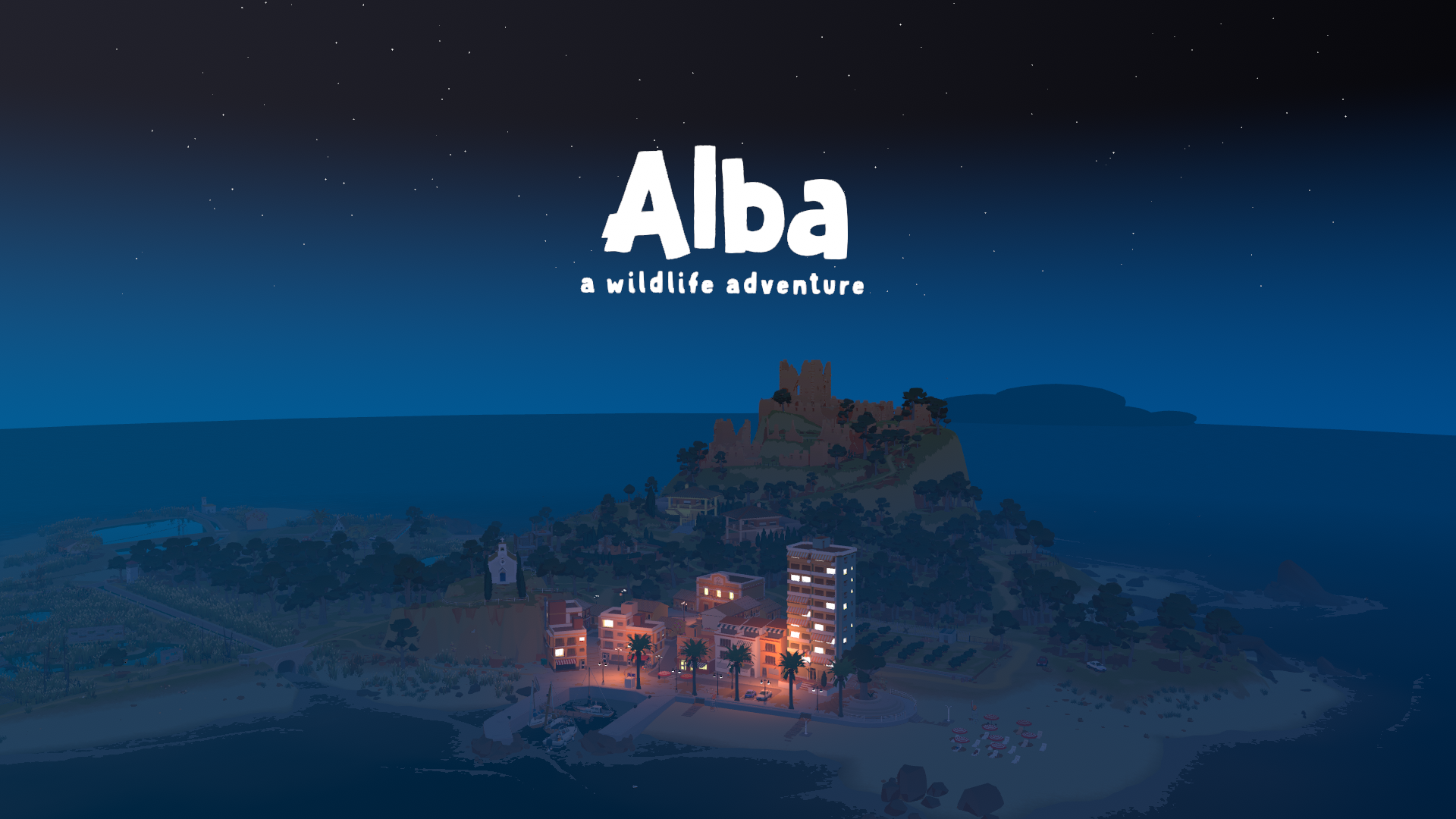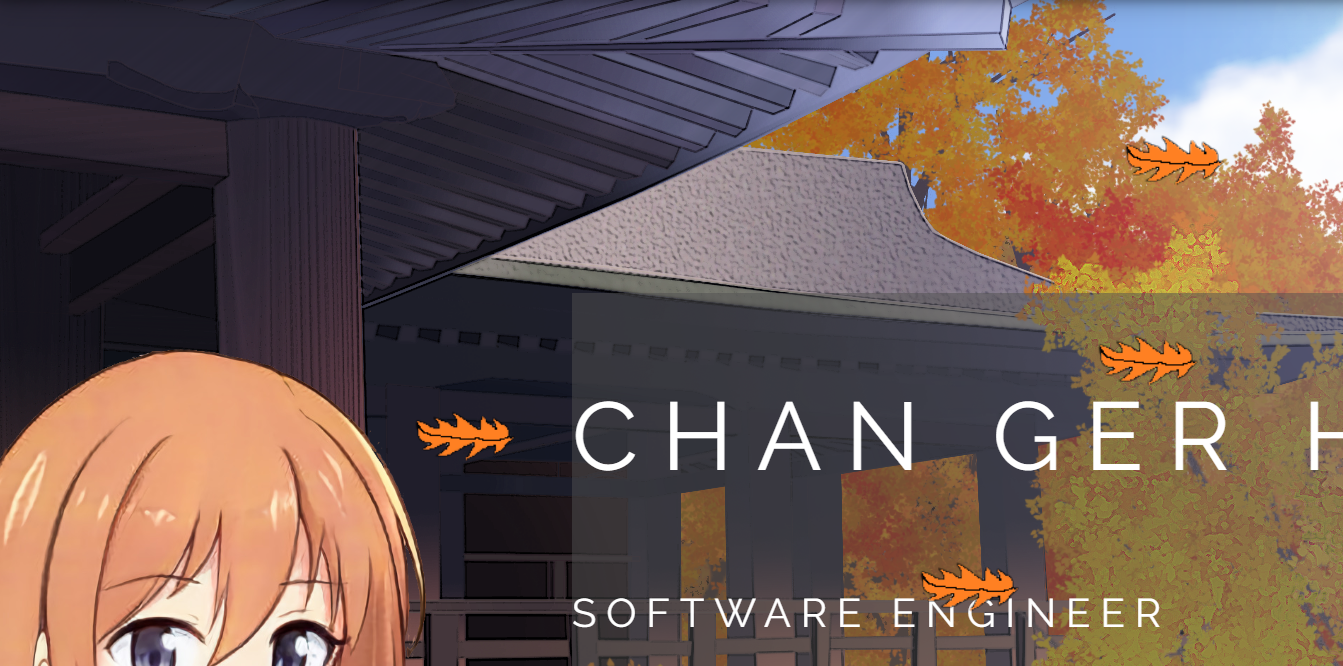Github CEO Fireside Chat!
Insights from the CEO of Github? And what happened afterwards...?
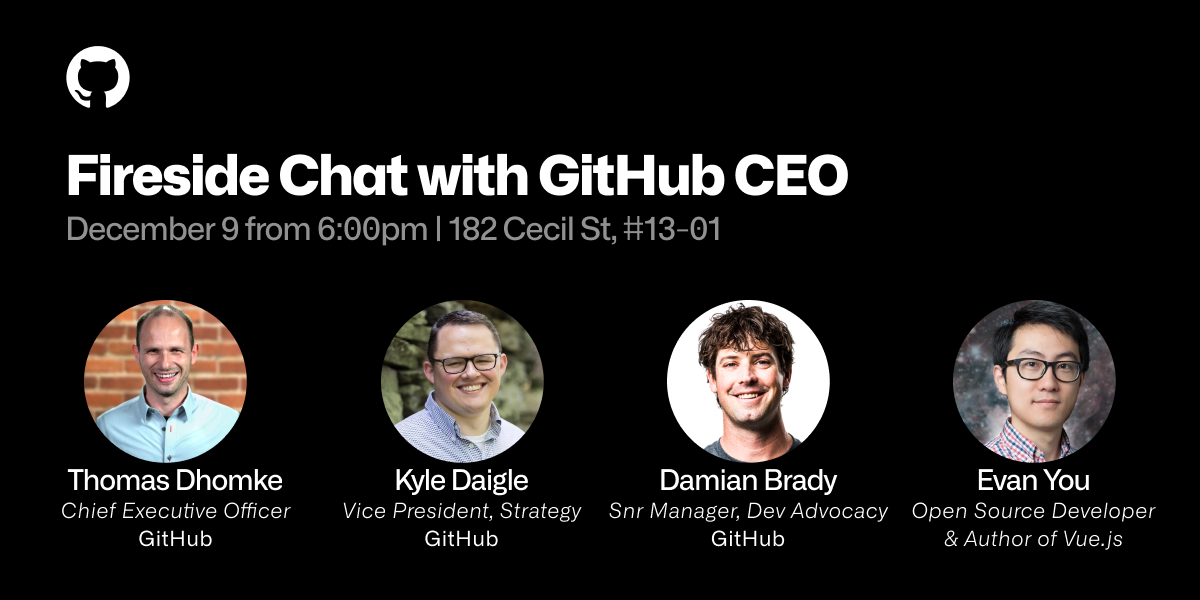
Recently I attended the Fireside Chat with GitHub CEO Thomas Dhomke! Honestly, I was simply amazed that I was able to see the people who made the tools I love so much! If I didn’t know the feeling of a crazed fan meeting their idol for the first time in real life, I certainly do now!
Pre-talk
When I walked into the Microsoft Office Frasers Tower at 5.55pm, there was already a big crowd of people there! Big thanks to the NUS Hackers team, they seem to be working hard manning the reception for the event! After getting my name tag, I got into the lift up to the 13th floor, and was greeted by this:
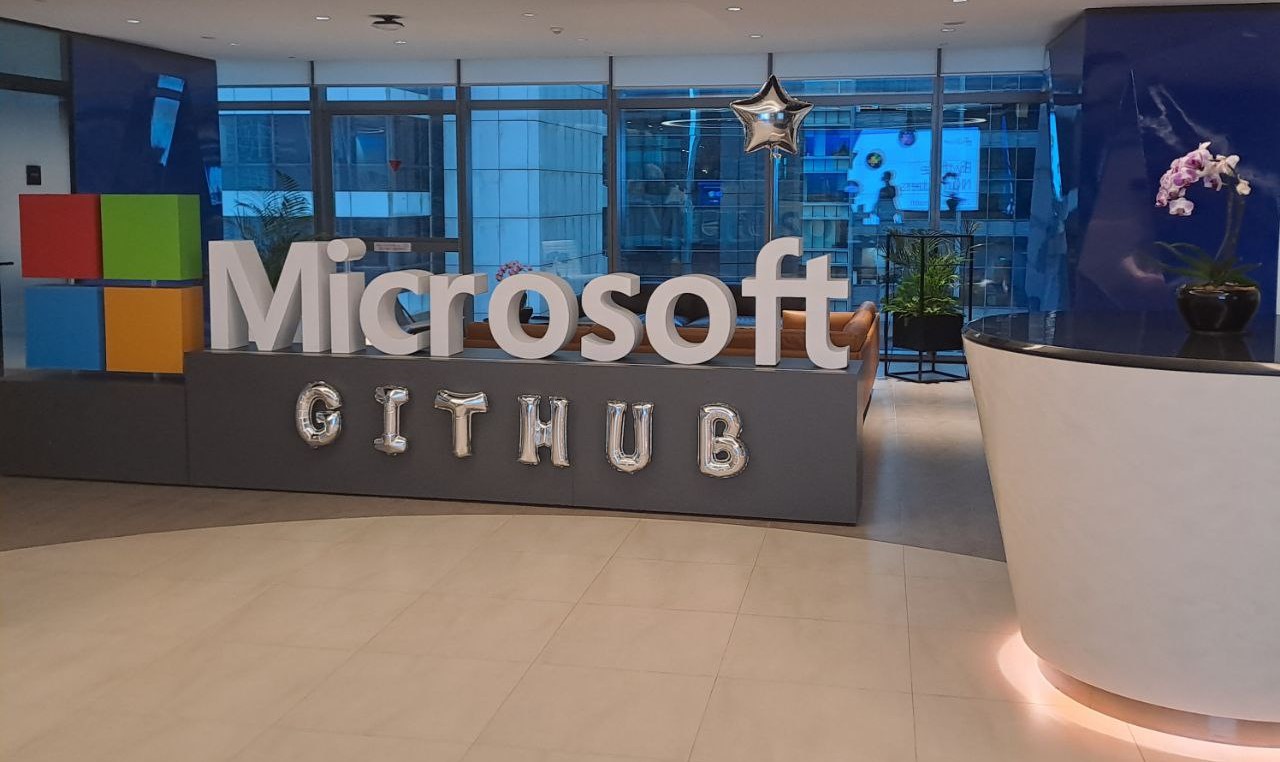
It is quite the nice feeling to be standing in the Mircosoft office for the first time! Perhaps one day I’ll even work here? There were a ton of stickers on a table nearby too, and I took a few of course.
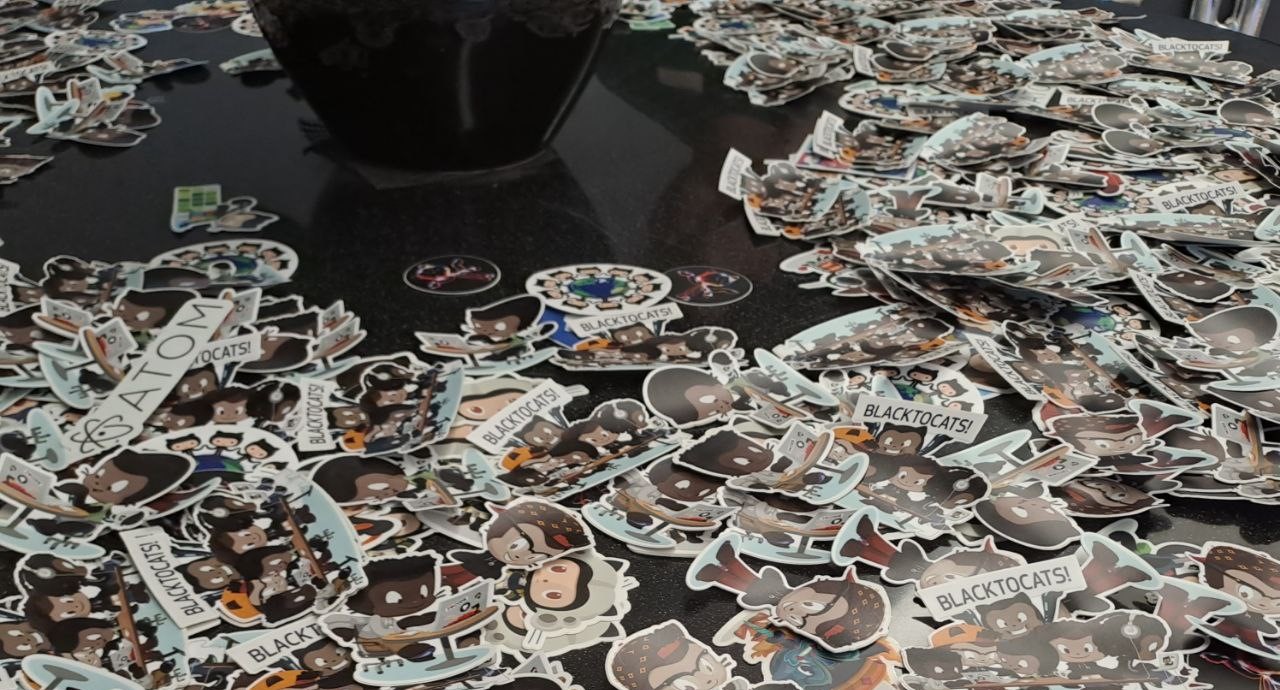
And here’s a really cute 3D printed office space layout concept! Unfortunately it didn’t match with the surroundings I saw, but nice regardless.
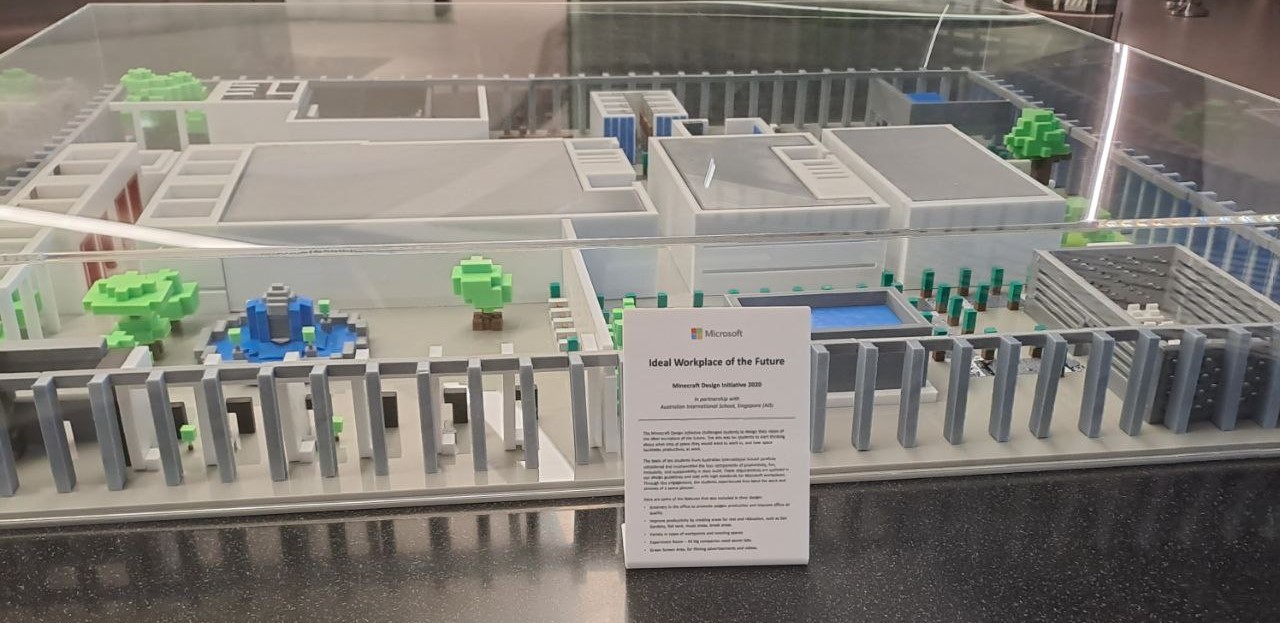
And there were even snacks provided! I really liked their coffee too, might be the reason why I can’t sleep though…

Since this is obviously a networking event, I tried my best to talk to the strangers around me. Unfortunately, I was still quite the shy person… But I managed to chat a little with a first year NUS student. Hopefully my tips for how to survive the CS ciriculum were helpful?
During talk
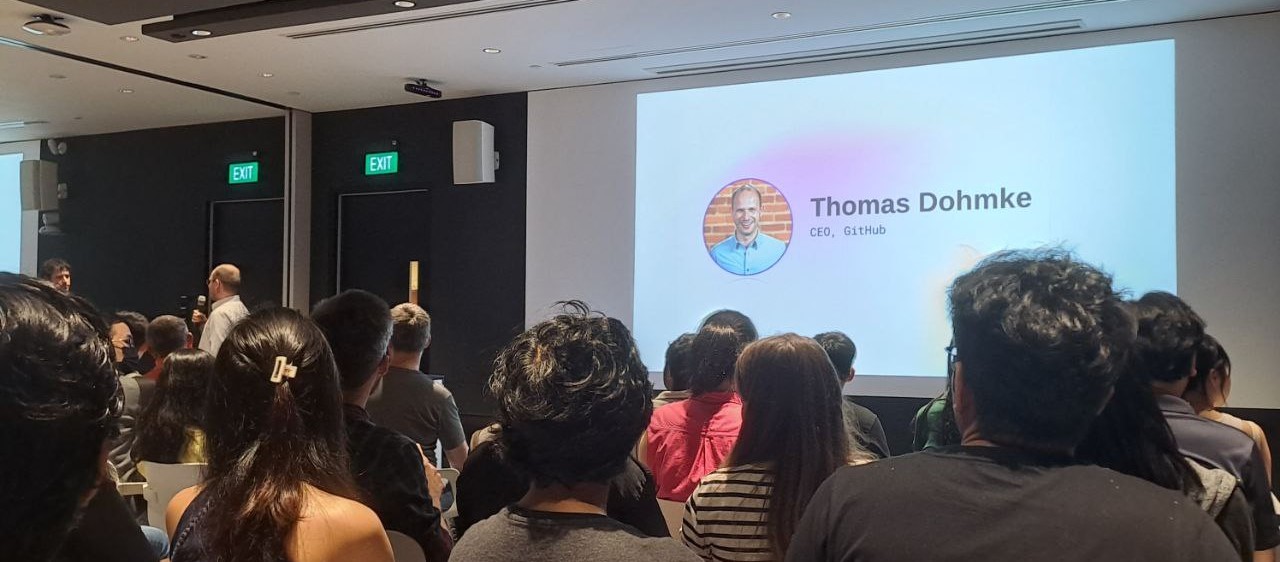
Unfortunately, I only managed to capture his side profile, but he was still there talking to us live! Honestly still can’t stop thinking about just how amazing it was. But the content of the talk is still the most important take away of course. I tried my best to take notes during the talk, might have missed a bit, but heres a short summary!
Firstly, Mr Thomas Dohmke shared a little of his life story. He grew up in Germany, and his interest in technology seems to have started with electronic calculators. Unfortunately, I did not manage to take much notes about this section.
Apparently, inner source is all the rage in most large companies now! While their code might be proprietary, but because the engineering team is so big, they are able to adopt an ‘open source approach’ to ‘closed source code’. As such, it is always a good idea to study how open source projects are built, even if you do not intend to contribute (even though you really should!)
Next, it seems that there is still a shortage of good developers in general? Many tech companies have been performing mass layoffs recently however, so I am not too sure about the panelists' assessment about the current state of affairs. Still, the NUS School of Computing is growing extremely fast, with a tripling of intake between 2018 (the year I entered NUS) at 400 students, and 2022 at 1500 students! Furthermore, Singapore seems to be the country with one of the fastest growing number of developers (as measured by number of new github accounts). Could it be related with the huge CS intake of NUS?
According to Mr Evan You, full time open source developers like him are really rare. In the early days (before 2010?), most open source work are done outside work hours, with most of it being hobbies. However, things started to change because of Github. Github increases the reach of open source projects, and projects can become trending within a few days.
Vue.js, which is Mr You’s project, is not officially owned by any company. Instead, a team of people work on it, with most having full time jobs, but some being freelancers and consultants. Besides goodwill, there is now also financial incentives to contribute to the project. Github Sponsors is a program to encourage users of open source software to pay contributors. Apparently, it is very well structured and hassle free for project to sign up for. This crucially helps to give contributors proper incentives to work on small but potentially useful projects. Projects can either be owned by an individual or a company which will then recieve the money from github.
It is possible to be hired by a company which contributes to open source, or have a project which grows so big that it attracts VC funding. However, Github Sponsors aims help open source projects stay independent and have more freedom without too much worries about how to monetise the porject.
Apparently this summer, Github gave $500 to everyone who contributed to any widely used project.
Github is also launching the GitHub Accelerator Program to help people to make a career out of writing open source code. Details are in the website, but a lot of seed money is going into this program. Deadline to apply for the current (first ever!) iteration is Dec 21. Contribution to open source is important for tech industry, hence Github and Microsoft willing to give seed money.
Most people who attended this event (fireside chat) pick up tools for the sake of learning it. But there are many people who simply learn these tools for work to earn money instead of enjoying the process. Many times, companies and school assignments do not factor in the time needed to learn or master a new tool, which can take a lot of time. Developer happiness is a topic which comes up in Github Universe.
After being stuck at home for a long time due to Covid, people began to realise how important it is to be happy. Your most productive time is also the time when you are the most happy (An example given was that working in the morning when drinking coffee is happy and productive). Creativity comes with happiness, but it is important to take breaks. Unfortunately, we have infinite creativity but not infinite time. Developer happiness is a huge part of what makes companies successful.
Full time open source developers feel very little impact from the pandemic. They are already used to everyone working in different parts of the world. Interestingly, most open source communities form on Discord (it is easy to see why when compared to alternatives though). Maany companies are forced to go remote for the first time, but open source communities are already used to it. Github (the company) is adapting quite well.
Mr Alwyn Tan, of OGP, was also there talking about how software engineering might drive public good. Like using software to distribute government vouchers. Has large potential for growth. Alwyn would like to see us use open source to build Singapore.
Everyone is aware of how indie open source projects might fill important niches, and are hoping to create better incentives to help people work on such projects.
Mr Kyle Daigle, the Vice President of Strategy at Github, was excited about the potential impacts of AI. For example, how AI will change how we deploy or develop code. Will it change how we do software?
ChatGPT is already able to generate very realistic dialogue (and writing children’s books). Midjourney is able to generate very interesting images from text. Learning is a lot better when there is AI as AI can customise to learning speed.
Github website code is version controlled using Github. Github has been working on a project called CodeSpaces since 2 years ago. CodeSpaces was initally slow but they improved it a lot since. Apparently, github employees use Copilot to write code for Github.
According to CEO, email is rarely used in Github, Slack is faster. Also Github seems to be hiring? Github is mainly work from home, but has offices for people to connect.
Some closing thoughts
A lot of interesting stuff. I hope this was a good summary!
After talk
My some huge coincidence, I was able to reunite with one of my old JC friend!
Furthermore, the snacks from eariler was not supposed to be dinner. And so we were greeted by the real dinner. Which for some reason consisted mainly of… broccoli and cauliflower? There was chicken and dumplings too, but they were snatched up so quickly!
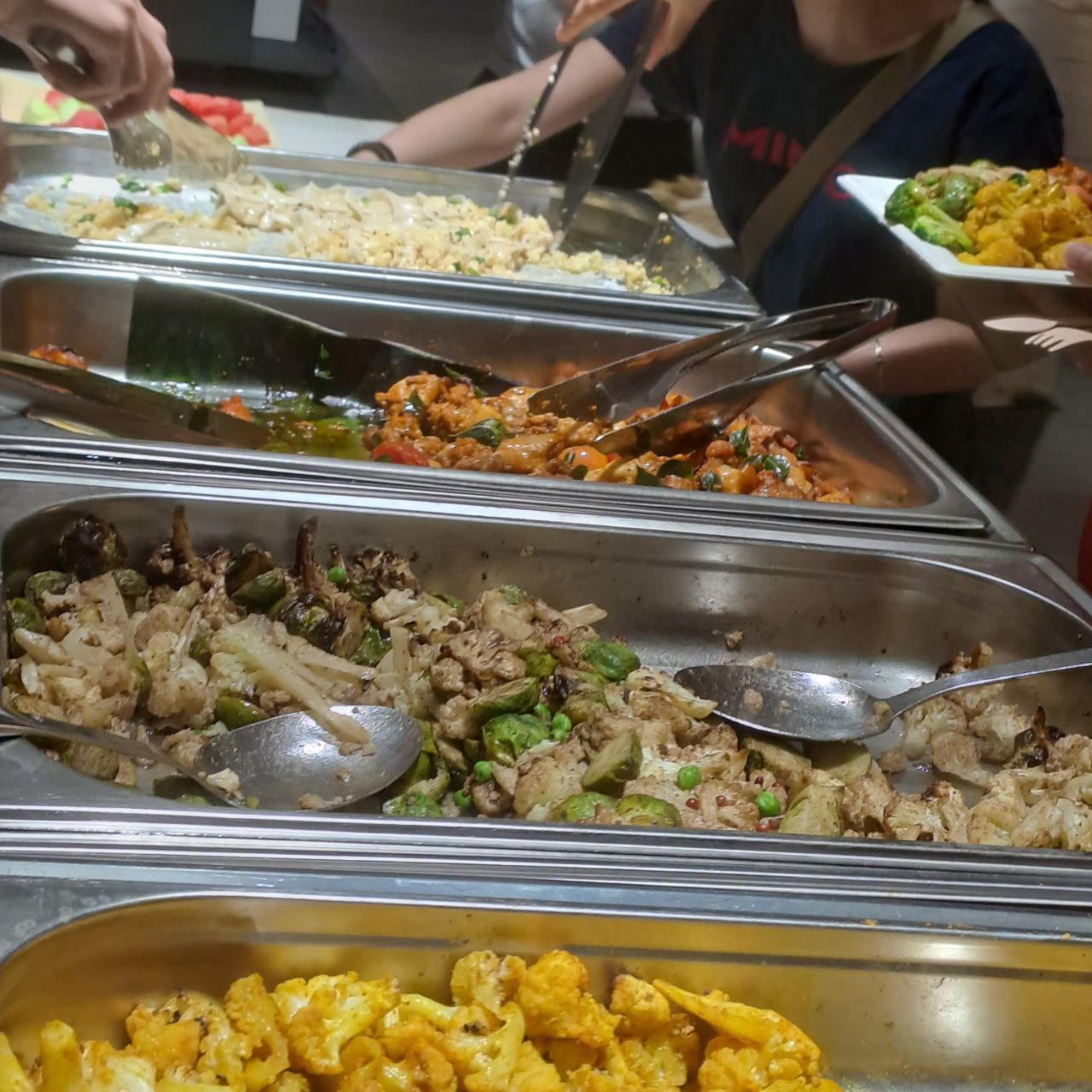
And for dessert, these really cute cupcakes!
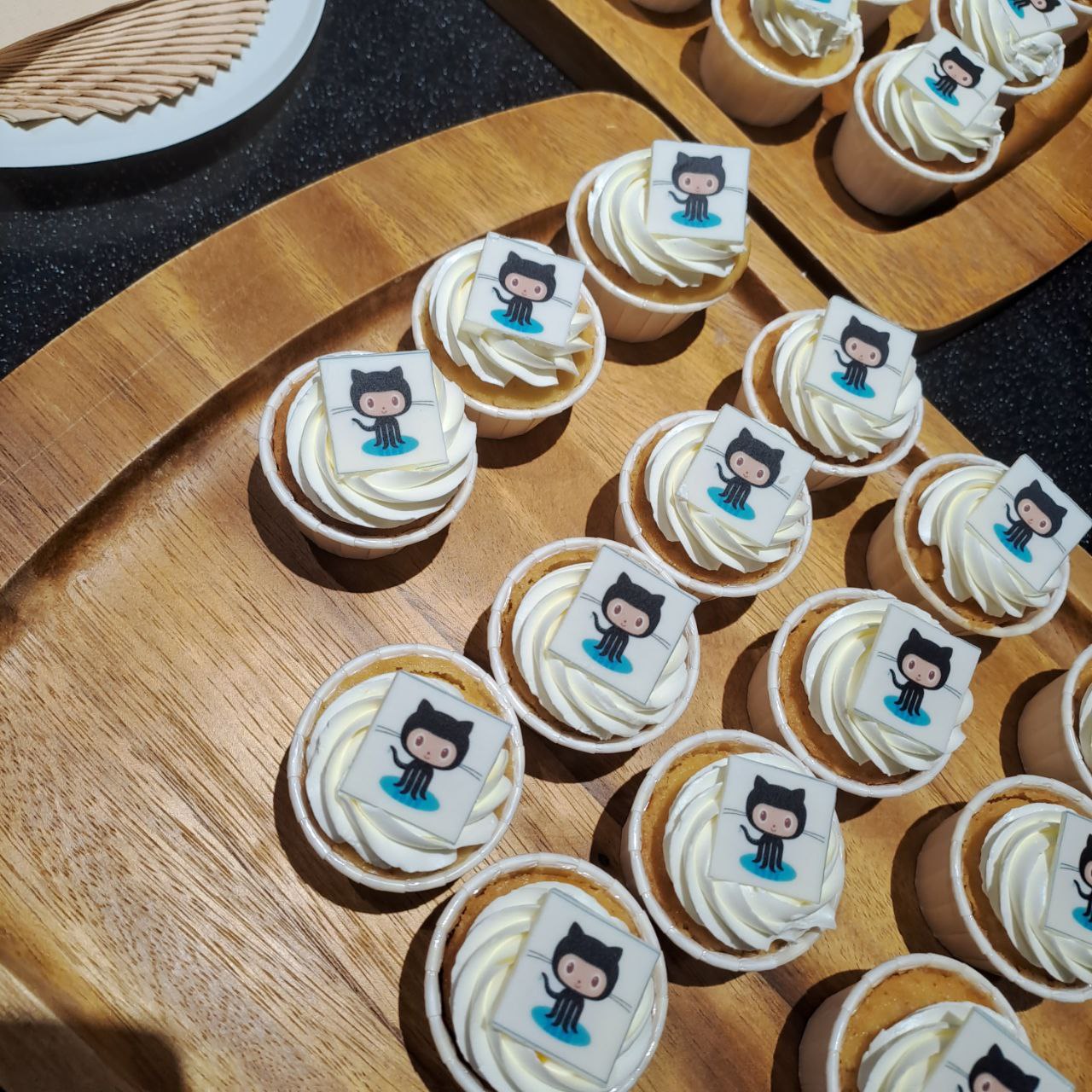
Going to OGP!
By chance, my friend and I overheard Alwyn talking about inviting people to visit the OGP office for dinner. Having applied for (and rejected from) OGP, I was of course quite curious how the office looked like!
Honestly, it was much smaller than I expected! Apparently most people there are working from home/hotdesking so the office space did not need to be too big. Anyway, here are some pictures I took!
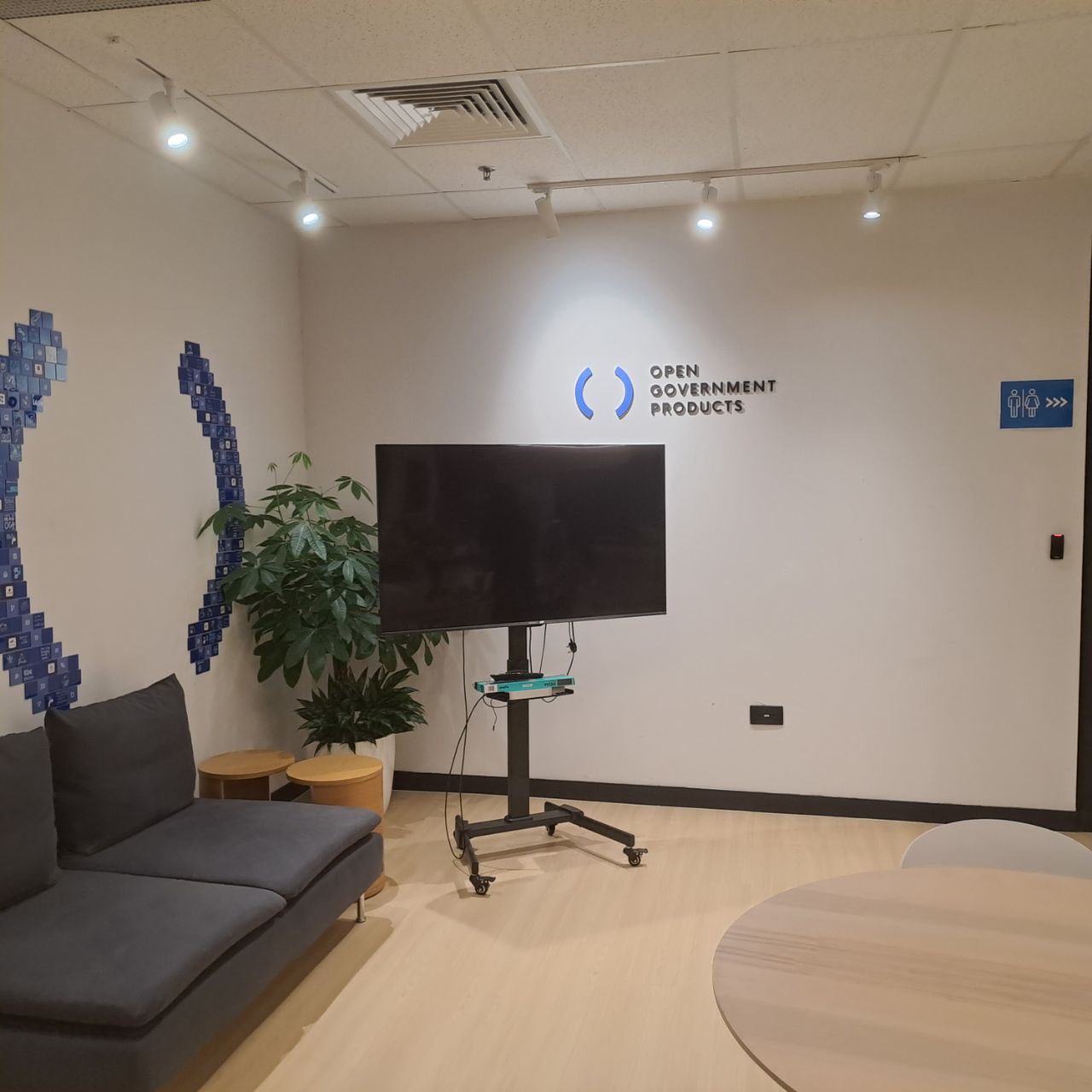
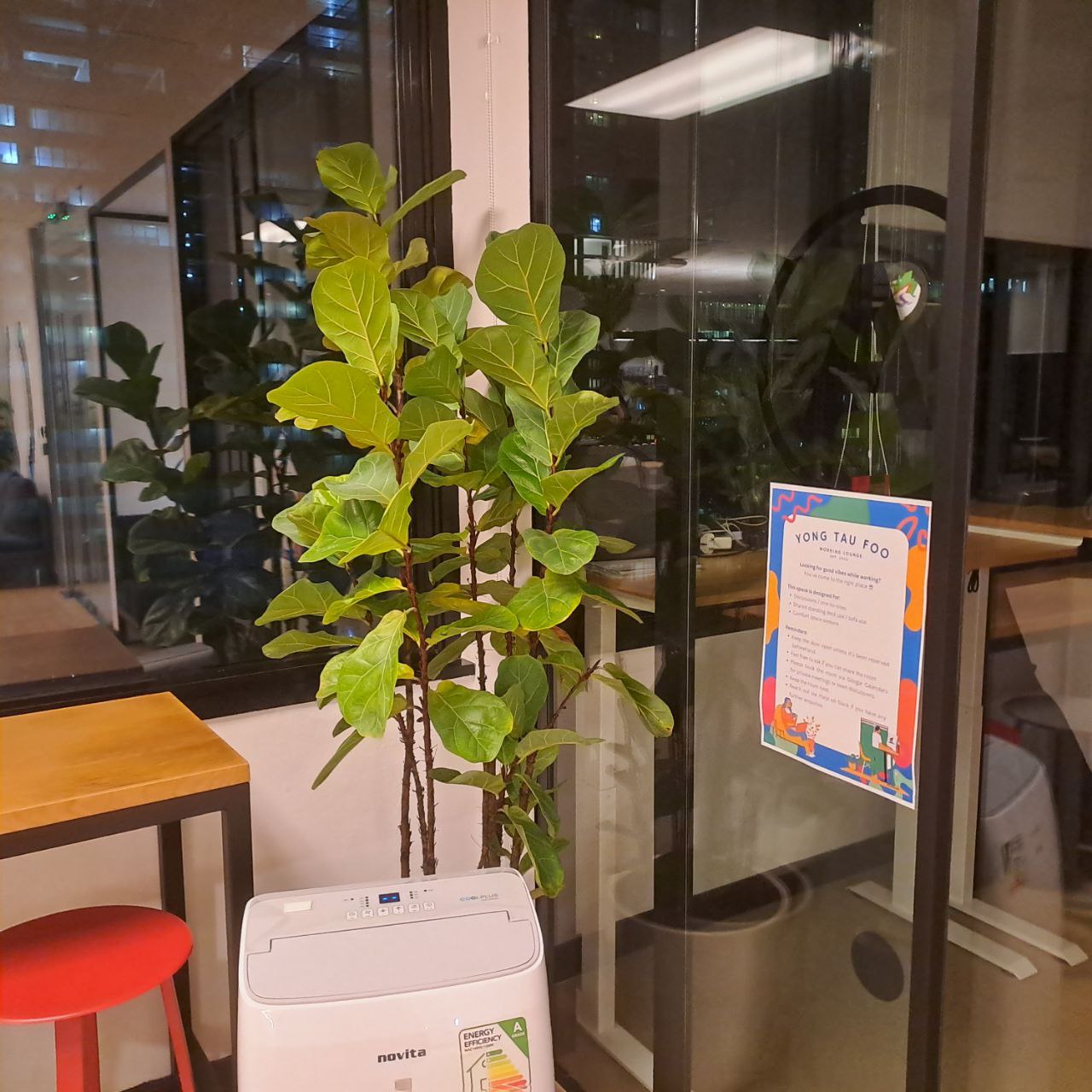
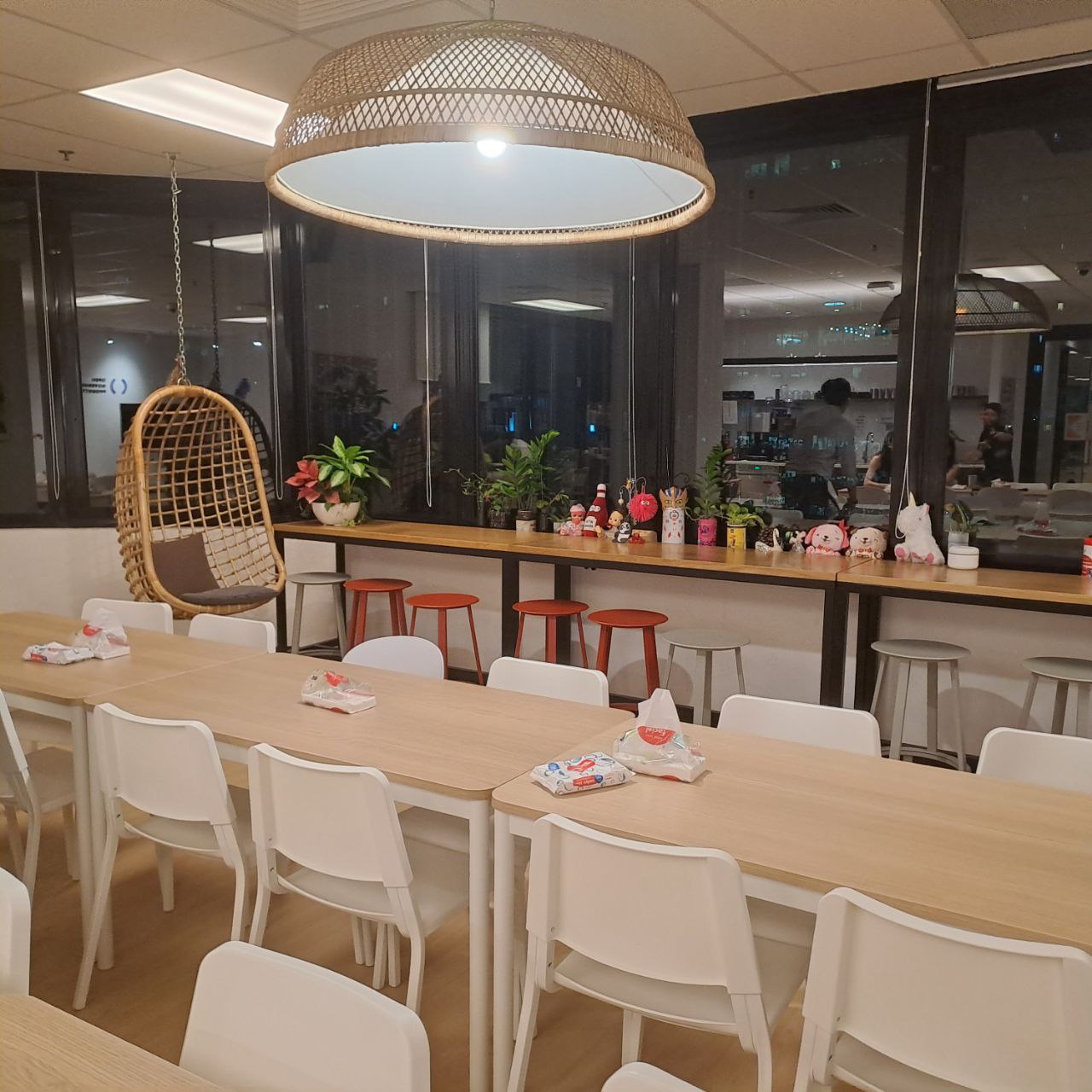
Over there, I heard some pretty impressive stories about people hosting hackathons and the logistics behind them. Like how hard it is for younger organisers to open bank aacounts or so. Sadly, funding for hackerthons have been drying out recently. Still, you can look for hackathons to join on Devpost!
I met many new people, and made new friends, and had loads of fun today! Will definitely be looking out for such events in the future! If you have any tech events you think is interesting, I would love to hear of it! In any case, it is getting quite late, so I shall sign off now. See you next article!


